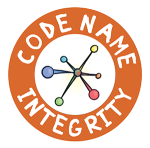Truth - Part 1 Session 2
Welcome back.
We live in a post-truth world, and although we may not like the truth, we can't cancel it. How much better is it to know the truth and respond accordingly?
As a boy, my job every Saturday was to wash the family car. One Saturday, I got totally distracted with things my friends and I were doing. That night, my parents asked me if I had washed the car. I lied and said I had. It was my feeble attempt to avoid the consequences of not fulfilling my responsibilities. I had done something else, and now I wanted to escape the penalty. I thought, "I'll be dishonest now and wash the car later." It seemed like a brilliant idea. Just a little lie. It seemed like my best friend. But needless to say, my lie was exposed, and my dishonesty added up to consequences for my disobedience.
Now, there's a fascinating historical account of a nation that staked their future on deception. Let me tell you the story. It happened around 2500 B.C.:
Now, all the kings west of the Jordan, those ruling in the hills and foothills along the Mediterranean Sea coast towards Lebanon, came together in a coalition to fight against Joshua and Israel under one single command. However, the people of Gibeon, the largest city of the region, heard what Joshua had done to Jericho, and they cooked up a ruse. They posed as travelers. Their donkeys, loaded with patched sacks, mended wineskins, threadbare sandals on their feet, tattered clothes on their body, and nothing but dry crusts and crumbs for food. And they came to Joshua at Gilgal; and they spoke to the leaders of Israel and said, "We've come from a far-off country, so make a covenant with us." The men of Israel looked them over and accepted their evidence. It was false evidence appearing true. So Joshua made peace with them, and formalized it with a covenant that guaranteed their lives. The leaders of the congregation swore to it.
But just three days after making the covenant, Israel learned that these people were next-door neighbours, who were living just over there.
But the people of Israel didn't attack them. The leaders of the congregation had given their word before God. However, the congregation was up in arms at their leaders, and the leaders were united in their response to the congregation. They said, "We promised them in the presence of God, and we can't lay a hand on them now. We can't do this. But what we can do is we can implement the provisions of the covenant. And these people will serve us as woodcutters and water haulers for the rest of their days."
Now, the Gibeonites had gambled their homes and lives on a deception. They fabricated a story, and courageously carried out their fake presentation. Did they escape consequences? Well, within days of the signing of the treaty, the Gibeonites would lose their freedom and become slaves. And this happened because of a lie. They did have other options, and better options for survival. But they chose to put their trust in deception.
The Gibeonites' deception had significant consequence for their nation. But it also had consequence for Joshua and the people of Israel. Do you remember the illustration we used concerning the structural integrity? In structural integrity the one support, if it lacks integrity, the load will be transferred to other supports.
The same is true in dishonesty. A lack of truth by someone not only influences them, but it also transfers consequences to others.
Truth matters. It matters in business, in family, government, and the church.
So here's our group question to begin to discuss:
What does this historical event teach us about dishonesty and deception?
How should we respond when we have been intentionally deceived?




